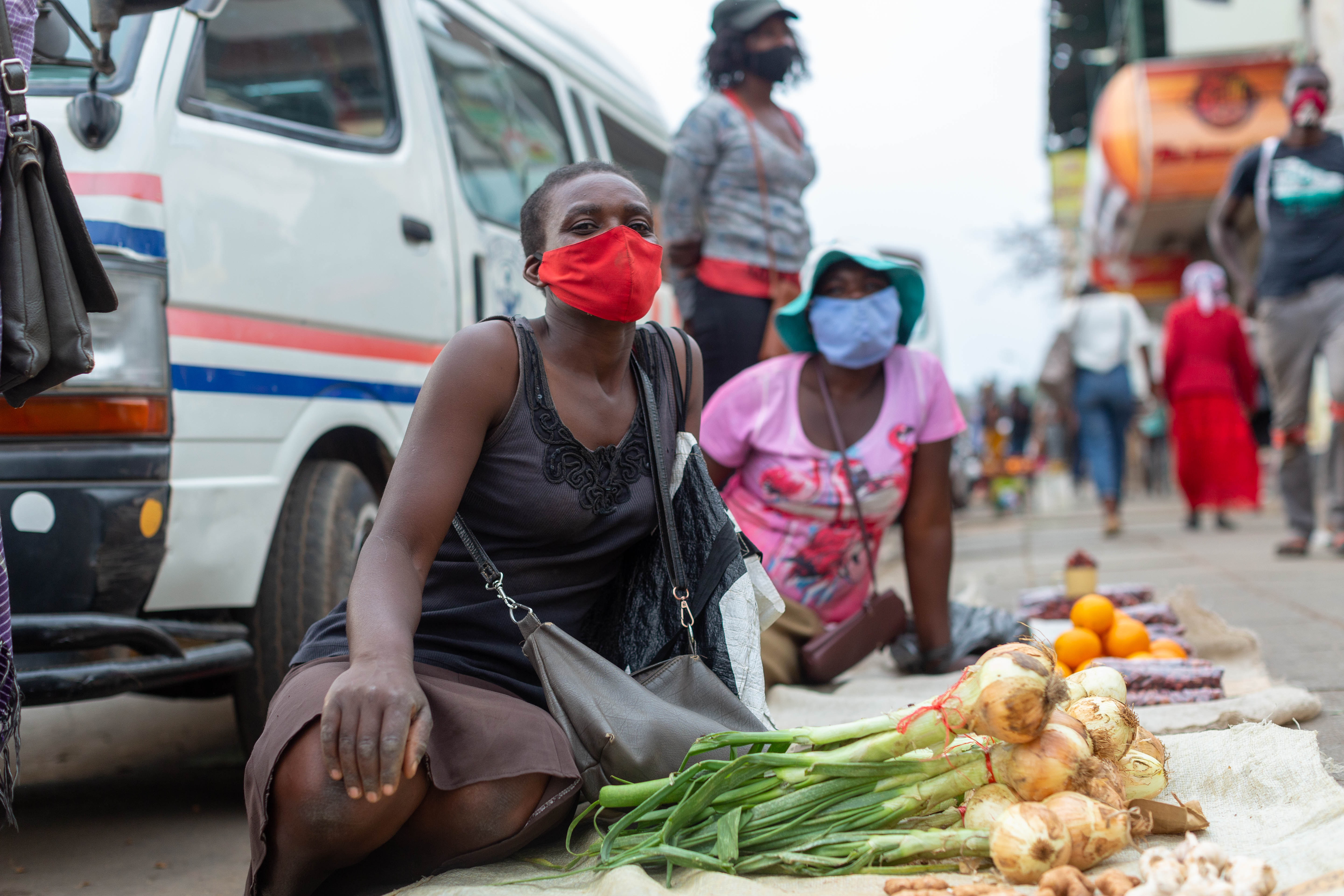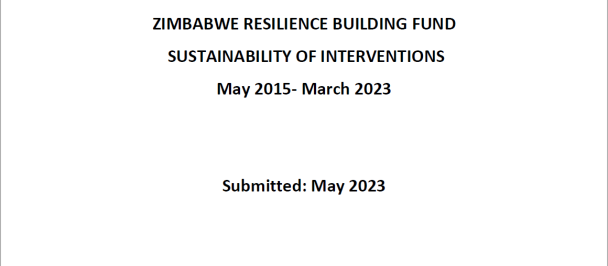Vendors sell food in an urban area
In Zimbabwe, the Covid 19 pandemic is impacting an already critical food-insecurity situation resulting from consecutive years of drought and macro-economic factors and is likely to result in a further increase in the number of food-insecure people. Urban food insecurity has risen substantially with the impacts of COVID-19 (Urban ZimVac 2020), especially now, when the country faces the third wave of Covid-19 cases surge, as necessary prevention measures are causing disruptions in logistics, rise import prices and income losses. To build resilience of urban food supply chains, UNDP and Ministry of Local Government and Public Works have joined hands with Department of Agricultural Technical and Extension Services (AGRITEX) of the Ministry of Agriculture and a private sector partner Knowledge Transfer Africa (KTA) to develop online solutions for market aggregation to mitigate against Covid 19 induced food supply chain system disruptions.
The agro-based food supply system in the country is vast and highly physically interactive in nature. The absence of strong mitigation measures means that the food markets can remain potential hot spots which perpetuate the pandemic impact on poor households, and vulnerable youths and women entrepreneurs. The food supply system is mostly informal and does not rely on sophisticated technology for trade. According to the International Monetary Fund (IMF), the informal economy constitutes 60.6 percent to Zimbabwe’s economic activity where livelihoods of millions of people depend on it. The rural households, dominated by women, produces 70 percent of staple foods who often sell surplus. Knowledge Transfer Africa (KTA) estimates that more than 90% share of surplus food produced by smallholders finds its way to consumers through mass markets, traders and vendors.
Globally, digital solutions are emerging as a key pillar in the global fight against COVID-19 yet in Zimbabwe the progress towards harnessing this potential has been slow. Apart from increase in the level of use of ICTs for online meetings by government and corporates as well as online financial banking and shopping transactions by middle- and high-income market segments and households, there is no evidence of widescale application of ICTs in fighting Covid-19. E-commerce and market re-organisation have immense potential for inclusion of the poor households, SMEs and informal sector players into the mainstream of the economy in Zimbabwe. Despite the overwhelming evidence that business solutions have transformed and happened in the digital platform, there is no corresponding evidence of increased use of ICTs by poor women and elderly in both urban and rural settings. According to Econet 2020 Annual Report, smartphone penetration in Zimbabwe remains at 52%. The cost of internet, availability of mobile data and infrastructure as well as innovations that suit women food supply chain actors have are barriers to many.
These gaps present an opportunity for the partners to step in to develop an online system that harnesses technology to link the food markets with the informal sector vendors who are most impacted by lockdowns as they cannot easily move to purchase goods. The system will help to bridge the digital divide between the informal sector and formal economy through data collection and sharing for linking vendors with suppliers, transporters, warehouses, retailers, consumers and other partners in the food supply value chain.
Zimbabwe has a relatively well-developed ICT infrastructure supported by a robust ICT Policy and sectoral players. In January 2021 mobile network penetration in Zimbabwe stood at 14.76 million mobile connections (equivalent to 98.5% of the total population) with mobile money platforms for cash transfers being widely adopted. This level of mobile penetration in Zimbabwe presents an opportunity for the informal sector in Zimbabwe to leverage technology to actively participate in the food supply chain. Although containment measures are expected to slow the spread of infections and see some extreme lockdown measures gradually lifted, evidence shows that there will be continuous surges in cases every now and then. Therefore, strategies limiting in-person interactions in order to prevent new infections are likely to become a new norm in food market spaces. Facilitating the digital economy can become one of the major pathways to sustain market activity and build resilient markets in the face of Covid-19.
This new intervention is envisaged to capacitate the Ministry of Agriculture and Agritex officers to renovate existing platforms and to expand the scope to integrate new digital solutions. Upgrading the platform will help vendors and small-holder farmers to efficiently operate and trade agricultural produce during the national lockdown and beyond. This new partnership is part of a broader initiative designed to decongest urban food markets through improved coordination, infrastructure refurbishment and health safety advocacy.
This intervention is being rolled out under UNDP-GOZ Urban Resilience Programme and UNDP Accelerator Lab, and with financial support from the Russian Federation, Multi-Partner Trust Fund for Covid-19 response (in partnership with UN WOMEN and ILO) and UNDP Rapid Finance Facility.

 Locations
Locations




